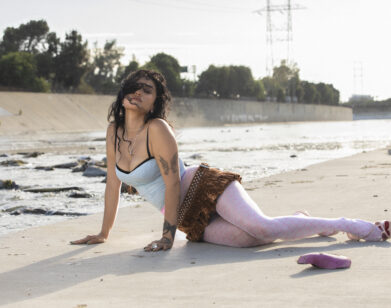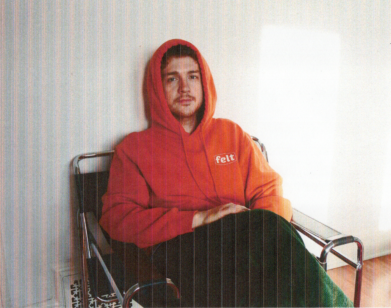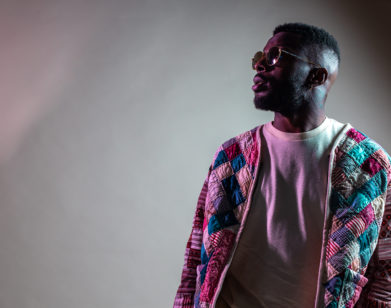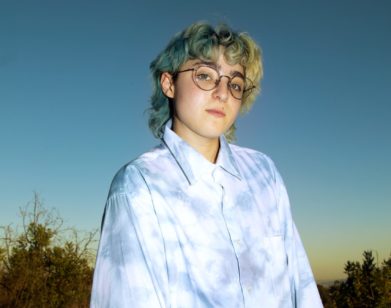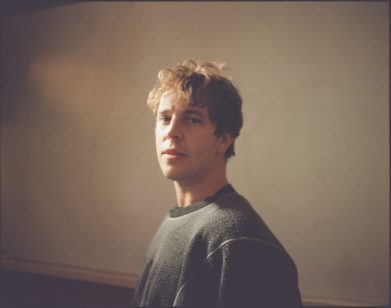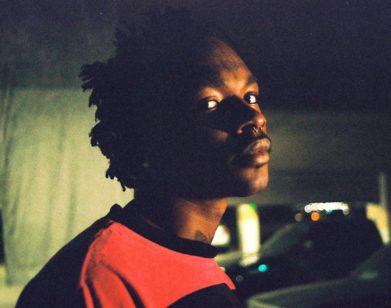add to queue
Julia Stone Is Listening to Leonard Cohen, Rosalía, and Alanis Morissette
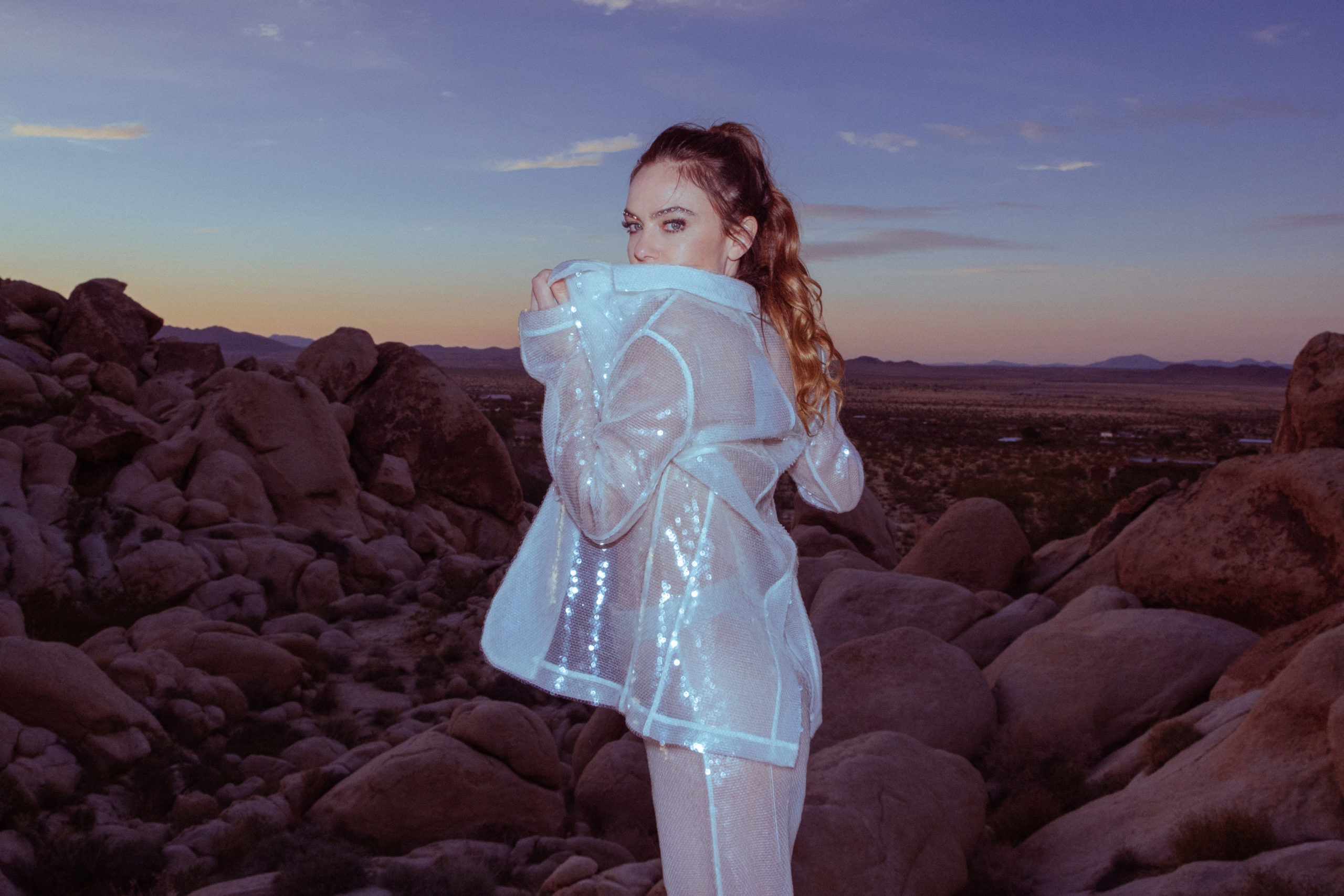
Julia Stone. Photos by Brooke Ashley Barone.
This is “Add to Queue,” our attempt to sort through the cacophony of music floating in the algorithmic atmosphere by consulting the experts themselves. Our favorite musicians tell us about their favorite music—the sad, the happy, the dinner party-y, the songs they want played at their funeral. In this edition, we speak with Julia Stone, the Australian electro-pop singer and alum of the brother-sister duo Angus & Julia Stone, whose third solo album, Sixty Summers, ushers in a season of wistful nostalgia and rooftop nights. Produced by St. Vincent and featuring Matt Berninger of The National, Sixty Summers is the musician’s first solo album in eight years. Below, Stone discusses her relationship to music, from playing the “spooky flute” to the timeless humanity of Leonard Cohen.
SARAH NECHAMKIN: What was the last song that you listened to?
JULIA STONE: The last song I listened to might’ve been the song “Real Groove” by Kylie Minogue.
NECHAMKIN: When was that?
STONE: I think just before I went out dancing on Saturday night, but I can’t remember any of the songs that were at the dance club because I wasn’t thinking about that. I’ve been wanting to go for a long time. It’s called Honcho Disko. It’s this very beautiful space where there’s lots of drag shows, and it was themed from the future, so everybody was dressed up in really awesome costumes, and we went out and danced until the morning. But before we left, I remember listening to “Real Groove” and dancing.
NECHAMKIN: Dance clubs are such a foreign concept right now in New York City.
STONE: It was the first time I’ve been out like that with people rubbing up against each other, and being in such a confined space. There was a period of time where we just couldn’t imagine what that would feel like, as you probably feel right now. It’s amazing how quickly, once you’re back in it, you go, “This is completely normal.” But Australia has been back to normal for a few months now.
NECHAMKIN: Who would you say were some of the earliest musicians to influence you?
STONE: Probably the earliest musicians, not including my parents, because I thought my dad wrote “Imagine.” I didn’t hear the original of any of The Beatles music for years; I just heard Mom and Dad playing them on the piano. After I realized they were just playing other people’s songs, probably the first music that I really was impacted by was Leonard Cohen. My dad had a CD collection, and one of the CDs was a “Best Of,” so it had all of the biggest hits. I used to play that on repeat in my bedroom when I was about 14. So good.
NECHAMKIN: What was your first concert? Do you remember?
STONE: Yeah, it was the Red Hot Chili Peppers at the Sydney Entertainment Centre.
NECHAMKIN: How old were you?
STONE: My mom took me. I think I would have been about 11. Again, my dad plays in a band, so I was going to see him perform a lot. But my first ticketed concert, I think, was that one.
NECHAMKIN: How soon did you start practicing or performing with your brother? Was that encouraged by your parents when you were young or did that come later?
STONE: My parents always encouraged us to express ourselves with music, but it wasn’t so much about singing and performing when we were little. I played the trumpet, and Angus played the trombone, and our sister played the saxophone, and we were all told that we had to develop our instrument. That was not particularly inspiring, that was just what we had to do. I think when I got to about 12, I started wanting to write lyrics and melodies with my voice, but I wasn’t good enough at any instrument at that stage to write the songs for that. My parents had ingrained in us a sense of confidence. I just felt, “Okay, I’ve just got lyrics, and I’ve got a melody, so I can stand up on the school assembly and just sing the song without any music.”I remember getting up at the school assembly and singing my first song that I had written by myself into the microphone with no accompaniment. Soon after that, when people made fun of me, I was like, “Oh, that’s not cool to do that.”
NECHAMKIN: When did you start learning an instrument?
STONE: I started learning the trumpet when I was five.
NECHAMKIN: That’s very young.
STONE: I could barely hold the trumpet up. There’s very funny photos of me sitting on a chair, and my feet don’t touch the ground, and I’m holding this trumpet that’s almost the size of my whole body.
NECHAMKIN: I’m sure your parents had a great time with that. Do you have a dream collaborator, someone you’d love to work with, whether they’re dead or alive?
STONE: I really love the “Let’s Dance” record by David Bowie. That would be a pretty fun collaboration. And I love Rosalía. think she’s incredible. I wish I spoke Spanish better than I do—that would be incredible to perform with her.
NECHAMKIN: Do you have a favorite movie soundtrack?
STONE: Yeah, Romeo + Juliet. The soundtrack was Radiohead, Garbage, Des’ree. There was this amazing performance by this kid… He did “Everybody’s Free.” It was just really complete. Maybe it was because of the time and what the movie was to me. I just was so taken with the film; it had such a mix of people at the time. It had The Cardigans on there with “Lovefool,” which was—
NECHAMKIN: So good.
STONE: Yeah, it was just stuff about deep love, and I guess when I was a teenager, I couldn’t get over how much it resonated with me.
NECHAMKIN: Do you have a song or an artist that always puts you in a good mood?
STONE: Yeah. I think I would say Neil Young, Comes a Time. That is something that always makes me feel really good. Then Lady Gaga and Ariana Grande “Rain on Me.” You cannot not feel good when that’s on. Another one is actually a St. Vincent song, “Prince Johnny.” I really, really love that song. She’s so amazing.
NECHAMKIN: On the other side of that coin, do you have songs that you or a playlist that you always play if you’re kind of in your feelings; if you’re going through a breakup, or you’re in your room crying about something?
STONE: You know how you have a record that you played when you went through something really difficult, and whenever you hear it, it takes you back to that time? It’s really easy to access that feeling. For me, that was the Bon Iver record, For Emma, Forever Ago. There’s been times where I have to feel that thing, and I can put that record on and straight away be in it.
NECHAMKIN: What about if you’re hitting the road? When you’re on tour, what do you play?
STONE: Do you remember that record by Bonnie “Prince” Billy, Master and Everyone? It’s really awesome, and it’s a really good for driving, and that’s great. I’ll play that.
NECHAMKIN: What about if you’re having people over; you’re trying to dance; maybe you’re trying to be more low-key. What’s your go-to?
STONE: Probably something old-school. I have a playlist that I’ve titled “Dance,” which is a mix of D’Angelo, Grace Jones, and Lionel Richie, Madonna, The Cranes. I think it’s a bit of a mix, but it’ll be, I think mostly classic dance tunes.
NECHAMKIN: What about when you’re writing music? Do you listen to other musicians to get inspired? Do you find that it’s distracting? Do you listen to ambient music? What kind of songs do you listen to when you’re trying to get into that headspace if at all?
STONE: I guess I don’t really listen to music when I’m writing. It’s something I’ve always found works for me. There’s so much sound when you’re making music that the silence around it is helpful. It’s funny, because usually people ask “What are you listening to?” around the time of writing a record, and often, I can’t really think of anything. I can remember watching TV shows or films, but not music so much.
NECHAMKIN: Oh, really? What shows and films have you been watching for this last one?
STONE: I was obsessed with Veep for a big portion of making this record—the original Veep, the UK version, which was also written by the same person who wrote Veep. It’s called The Thick of It. They’re both incredible. Thomas and I would just watch these series always between writing. Also, Thomas [Bartlett] has in his studio a separate computer that’s set up just playing old films from Criterion, and the films would be playing silently while we’d be recording, so I guess we had a load of visual stimuli whilst we were writing.
NECHAMKIN: What kind of films? Anything? Everything?
STONE: The very original Beauty and the Beast. I remember that playing a few times through. It’s maybe from the forties or fifties when it was made. Super amazing. The Conformist—I remember that playing a few times. I’m just randomly picking out the ones that I can remember, but it’s been pretty much nonstop for over three years. Every time I was in the studio, there was a film playing.
NECHAMKIN: Did you ever go to karaoke before the pandemic? What’s your go-to karaoke song?
STONE: I went to karaoke once in Queens when I was living up in Queens, and I was terrified. I find karaoke so overwhelming because it’s like “Oh, you’re a singer. You’ll be good,” but I get really stressed out. I think I did that night, Fergie, “My Lumps.” Is that it?
NECHAMKIN: “My Humps.”
STONE: “My Humps.” I did that. Then recently, since we’ve been able to hang out with friends and do stuff, I went to my girlfriend’s house and we had a girls’ night up at her place and she’s got karaoke on her projector, and her and I did that song “Cruisin’.” You know, “I love it when we’re cruising together.” That was my last karaoke experience. Now I’m feeling like I could do it again.
NECHAMKIN: What would you pick for your next song?
STONE: I just saw a film called Booksmart that Olivia Wilde made and I love the same way he does the Alanis Morissette song [“You Oughta Know”], and I was like, “I would love to do karaoke and do an Alanis Morissette song.”
NECHAMKIN: That’d be so good. Right before the pandemic, one of the last things I did was go to see her Broadway show, Jagged Little Pill.
STONE: Oh my god, that sounds so fun, because you’d just know every single word, every single lyric.
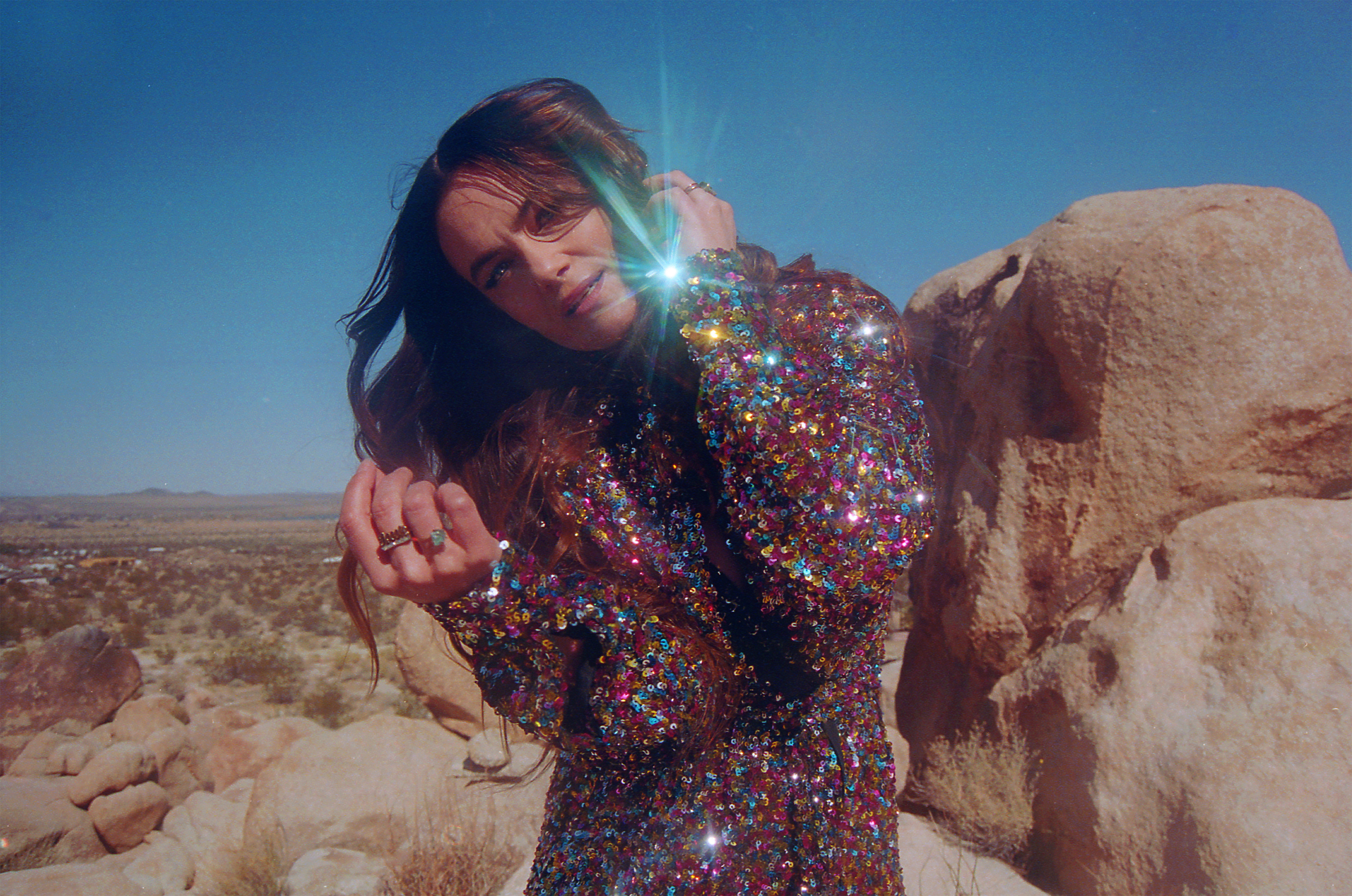
NECHAMKIN: Do you ever sing in the shower?
STONE: Yeah, I do sometimes. I generally sing the same song, a shower song that I think my mom must’ve sung when I was a kid. I don’t know what the song is. The lyrics are [singing] “fish gotta swim, birds gotta fly, I gotta love one man till I die, but I can’t help lovin’ that man of mine.”
NECHAMKIN: I like it. You don’t know where it comes from?
STONE: I don’t know. I guess it must be an old jazz band or something. It’s just in my head.
NECHAMKIN: Do you have an instrument that you’d like to learn how to play?
STONE: Yeah. I’d love to learn to play the flute properly. All my friends say that I play the spooky flute, because I don’t really know how to play. I always play scales that are really spooky, because that’s what your fingers naturally press on the flute, but I’d love to learn how to play everything.
NECHAMKIN: If your life were a TV show, what would be the theme song?
STONE: That’s such a good question. What would yours be?
NECHAMKIN: Oh! No one’s ever asked me that question back. I don’t know. Something from the early 2000s, kind of angsty. Maybe an Avril Lavigne song.
STONE: “Complicated.” That’s the best. I’m waiting for an Avril Lavigne musical. I think that would be awesome. Her lyrics work so well. Maybe for me, a Nelly Furtado song. “That girl, you know she act too tough, tough, tough” —”Turn Off the Light.”
NECHAMKIN: Would you ever use your own song? How do you feel about listening to your own music?
STONE: Oh, I don’t mind at all. I mean, I used to hate it. Now, I don’t sit down and listen to it, but if it comes on in a coffee shop or something or at someone’s house, I don’t walk out of the room. I can listen. I think slowly over time, I’ve transformed into feeling more proud of what I’ve created instead of thinking that’s either amateur, or I wouldn’t do it like that, or I didn’t know how to sing into a microphone properly. I look back and I go, “That’s really sweet.” I can hear the learning.
NECHAMKIN: If you had the chance to show the whole world one song, which song would it be?
STONE: Probably “Hallelujah” by Leonard Cohen. I just think there’s something about it that taps into something that’s really intrinsically human. I don’t know if it’s the melody, the lyrics, or all of it, but whenever I’ve sang that song with people in a space, people are affected in a way that I think is helpful. It reminds us of our humanness and our connectedness. If you’ve only got one song to play for everybody at once, it has to be something that reminds people of that feeling. I’m sure there’s so many that are like that, but that’s the one that springs to mind from having played it at dinners and even funerals. It always reminds us of our journey from beginning to end.
Listen to Julia Stone’s “Add To Queue” playlist below, and follow Interview on Spotify for more.

